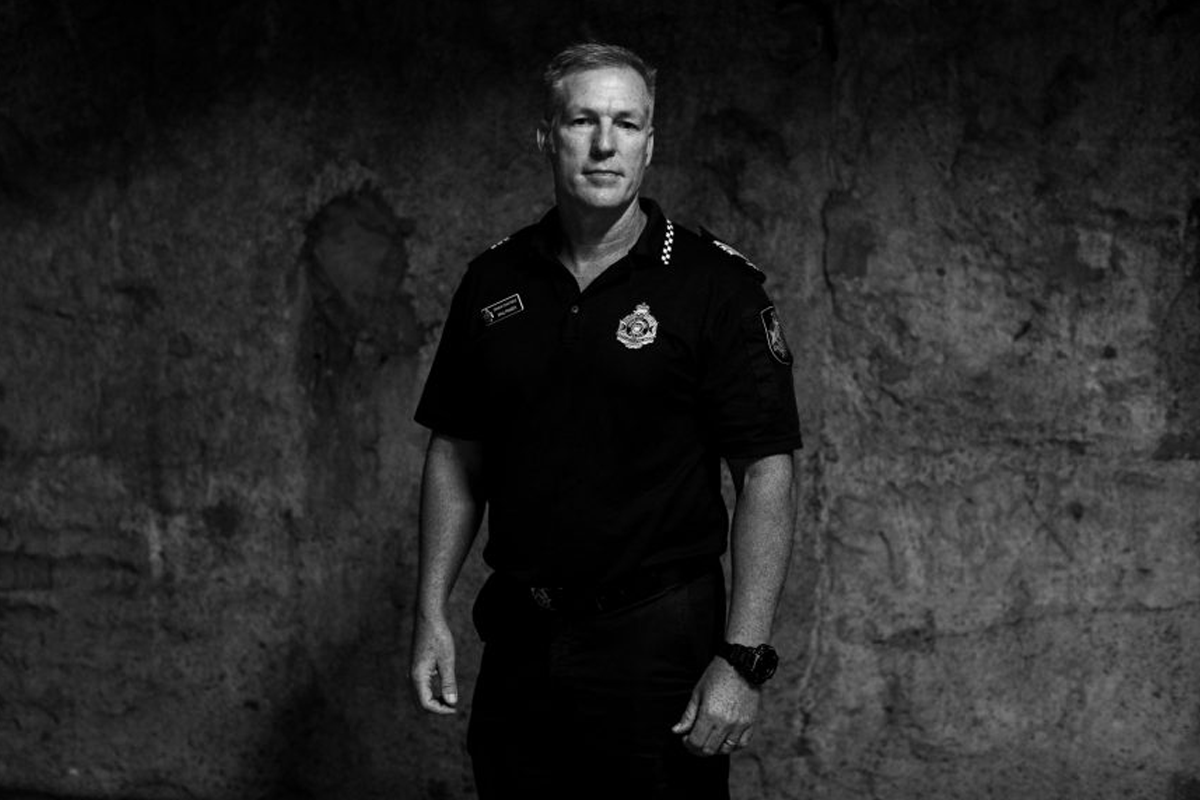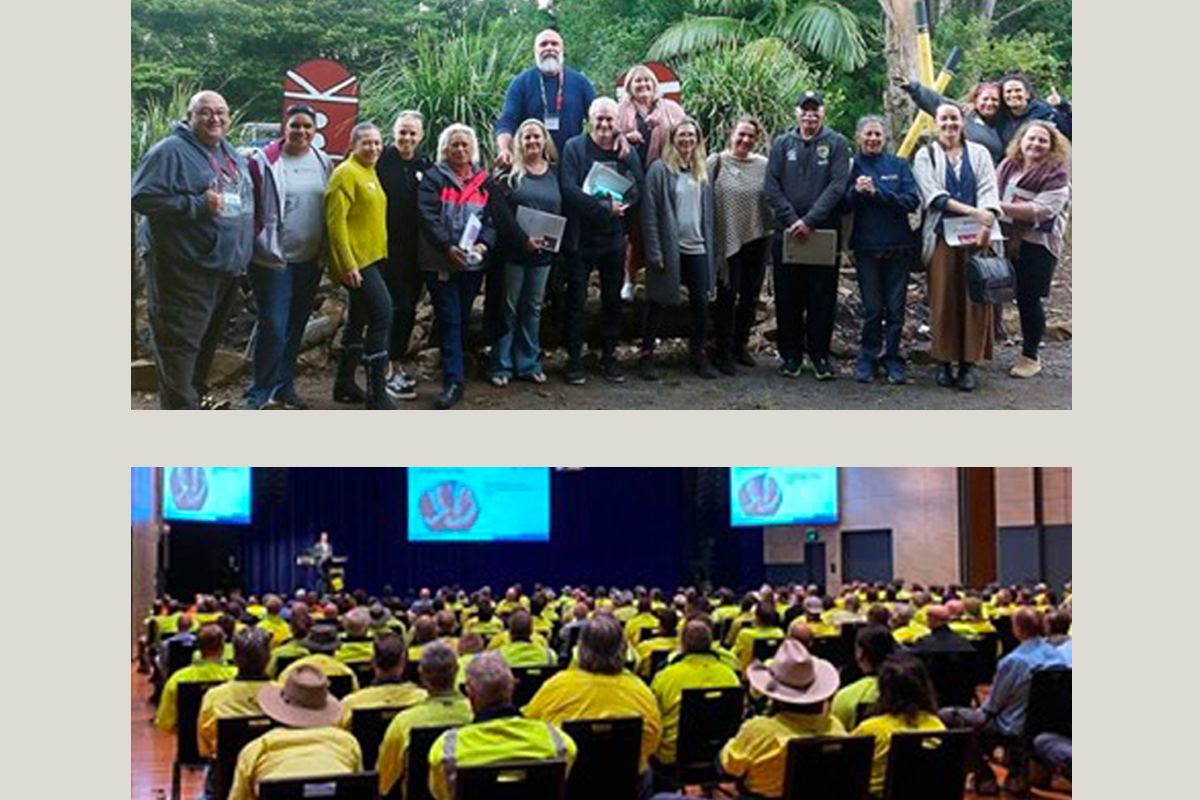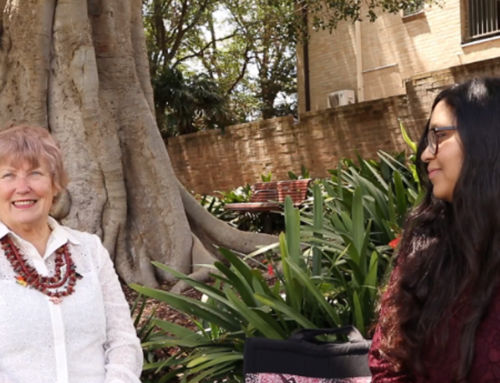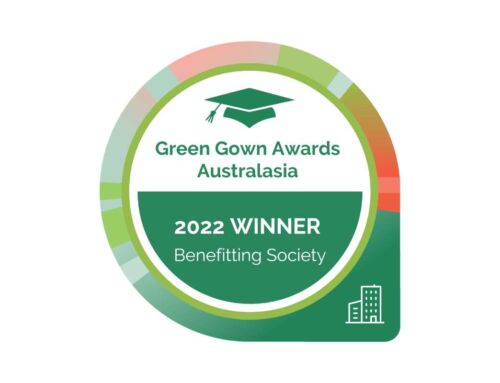Putting the Uni in Community: regional university empowers local community to reduce suicide and improve mental health outcomes
The Alliance for Suicide Prevention addresses the Sunshine Coast’s unacceptably high suicide rate through a partnership framework that is creating rapid and meaningful social change. Led by the University of the Sunshine Coast’s Thompson Institute, The Alliance brings together 140 community, private, and public sector organisations, working to create meaningful change through public awareness, community training, upskilling of health professionals and supporting high-risk groups. Alliance initiatives have benefitted 17,827 people, through the program’s award-winning engagement model.
More than 2000 people have completed The Alliance’s suicide prevention training programs to help them identify the signs that someone may be thinking of suicide. Sectors with clients at higher risk, such as domestic violence, housing, and youth mental health, are offered fully funded training in suicide prevention skills. This targeted approach has allowed The Alliance to have a powerful impact on upskilling key people in the community to help address suicidality in the region.
> The initiative
The Alliance for Suicide Prevention was established by the University of the Sunshine Coast’s (UniSC) Thompson Institute in 2019 as a strategic framework to address the Sunshine Coast region’s alarming suicide rate, which is 9.1% higher than the national average. Developed from the European Alliance Against Depression model – an evidence-based program targeting depressive disorders and suicidal behaviour – The Alliance for Suicide Prevention strives to create a connected community to improve mental health and resiliency to suicidality and its precursors through an integrated network of community-based partners. UniSC is one of the first to adapt this European model to an Australian context, with further adaptations to ensure cultural capability and relevance for First Nations People. The purpose of the Alliance is to:
- Reduce the number of suicide attempts and completions:
- Provide evidence-based support for the improvement of mental health education and awareness: and
- Become a nationally recognised model for the prevention of suicide in Australia.
To achieve our purpose and objectives, The Alliance offers an ongoing program of suicide prevention activities, through a scalable and replicable model, with plans to expand beyond the Sunshine Coast over coming years. The Alliance team will work with regional partners to build relationships that embed the model as a foundational structure within the community, promoting a shared sense of responsibility to reduce suicide. In 2021, The Alliance team won the award for Community Engagement at the 2021 Engagement Australia Excellence Awards, which recognises “far-reaching impact and innovation” by universities and their research.
> Environmental and social benefits
The Alliance has generated important social and economic benefits through impactful community engagement, including:
- 140 regional organisations have joined as members, representing almost 9,724 employees, with an estimated potential reach of 280,000· (calculated using the number of Alliance partners, training participants, employees at Alliance member organisations, and their customer base. This number projects the maximum reach of Alliance programs).
- Over 1700 community members have participated in suicide prevention training.*
- Over 20,000 people have benefitted from Alliance activities (based on increased knowledge and access to resources).*
- Enhanced public awareness of the prevalence and impacts of suicide in men aged 40 to 60 years through projects such as current photographic exhibition, “Portraits of Mankind”.
- No Indigenous suicide deaths in the Sunshine Coast region Jan-Jun 2021. Whilst it would be unreasonable to completely attribute this to The Alliance, we suggest that the program has influenced this positive outcome.
- Launched ‘iHelp’, a community co-designed digital tool that identifies and actions pathways to help, tailored to users’ circumstances, demographics and location. Tl partnered with award-winning social enterprise My Community Directory, to ensure information is kept up-to-date, crucial for users who may be in crisis.
- A clinical trial on chronic suicidality provided a rapid-acting treatment option that resulted in 69% of participants achieving a clinical improvement within the first 6 weeks.
- The Alliance has built its reputation to be a trusted source, which has encouraged agencies such as Queensland Police to work with us to use real-time data of local suicides to help inform a more impactful response to addressing the precursors to suicide.
> Leadership and engagement
Our Alliance team are connected and represented at many board table committees and panels that work on regional challenges including homelessness round tables, youth mental health consortiums, healthy ageing and dementia committees, diversity and inclusion committees, and Sustainable Development Goals working groups – just to name a few. This provides us with first-hand information and opportunities to ensure our priorities are set in alignment with our community’s and partner’s needs.
We believe our engagement model is particularly distinctive. The formation of our partnerships centred on the Head, Heart, Hand model:
- Head: Connecting on local issues and the opportunity to participate in an innovative response to a complex social issue.
- Heart: Connecting with honesty and authenticity, focused on aligning the program with the partners’ ability to make change.
- Hand: Providing tangible tools through which partners could contribute to the overall mission, through training and resources, with opportunities for input and collaboration.
Further to this approach, we have built trust and respect with Local, State and Federal Government agencies, national industry representatives, and most importantly our local community members. The Alliance has built its trusted reputation through our core leadership principles:
- Genuine communication: Vital to gain trust, align efforts in the pursuit of goals, and inspire positive change, all communications are clear and transparent. Events were facilitated (networking/Q&A panels) to share the mission and communicate how people can be involved.
- Understanding regional issues: Tailored regional suicide prevention responses were informed through our extensive research into the causes and treatment of suicide and an in-depth understanding of regional issues garnered through community focus groups.
- Leaders and changemakers: Regional leaders with the best voice to influence change were identified and invited to be involved, with the first approached those who were established contacts with a large staff, whose involvement would generate immediate action and encourage others to be involved.
- Ensuring alignment: The program’s mission and values were aligned to the local leaders’ mission to ensure it represented their vision for their community and supported their plan to achieve success.
- Action: Monthly suicide prevention training commenced, inviting representatives of potential partners to experience the training first hand.
The implementation of this model alongside our core leadership practice ensures we are addressing and supporting what is relevant to our community and our surrounding neighbours whilst influencing change by promoting and advocating for the actions needed to reduce suicide.
> Significance to the sector
The Alliance for Suicide Prevention – Sunshine Coast is a university-led program that has a high level of community engagement and partnerships with representation from small, medium and large organisations. Our project is action orientated with strong participation from industry that include MOU arrangements with our sector. The Alliance project is led by best practice with UniSC being the first to adapt the European Alliance Against Depression model to an Australian context. with further adaptations to suit the unique needs of First Nations People.
> Wider societal impact
The estimated cost of mental illness and suicide to the Australian economy is about $43-70 billion each year, with a further $151 billion from diminished health and reduced life expectancy. The 2021 Census found that mental health conditions affect 2.2 million Australians, making it the top long-term health disorder in Australia, ahead of arthritis and asthma. It is clear that there can be no health or sustainable development without a focus on mental health.
> Learner/Graduate employer impact
The Alliance’s host organisation, UniSC’s Thompson Institute, offers two postgraduate programs in Mental Health and Neuroscience. Both the graduate certificate and graduate diploma include the course Understanding and Preventing Suicide. The Alliance team has worked with the educators of these programs, to ensure graduates learn about suicide prevention engagement and community training activities occurring internationally and hear directly from the Alliance team about the impacts of its work on the Sunshine Coast.
The course is undertaken by people in a wide range of professions including teachers, allied health professionals, and first responders, many of whom are considered suicide prevention ‘gatekeepers’ within their respective communities. The legacy benefits to graduates and their employers stem from an enhanced understanding of gatekeeper roles, at both the individual and organisational levels.







